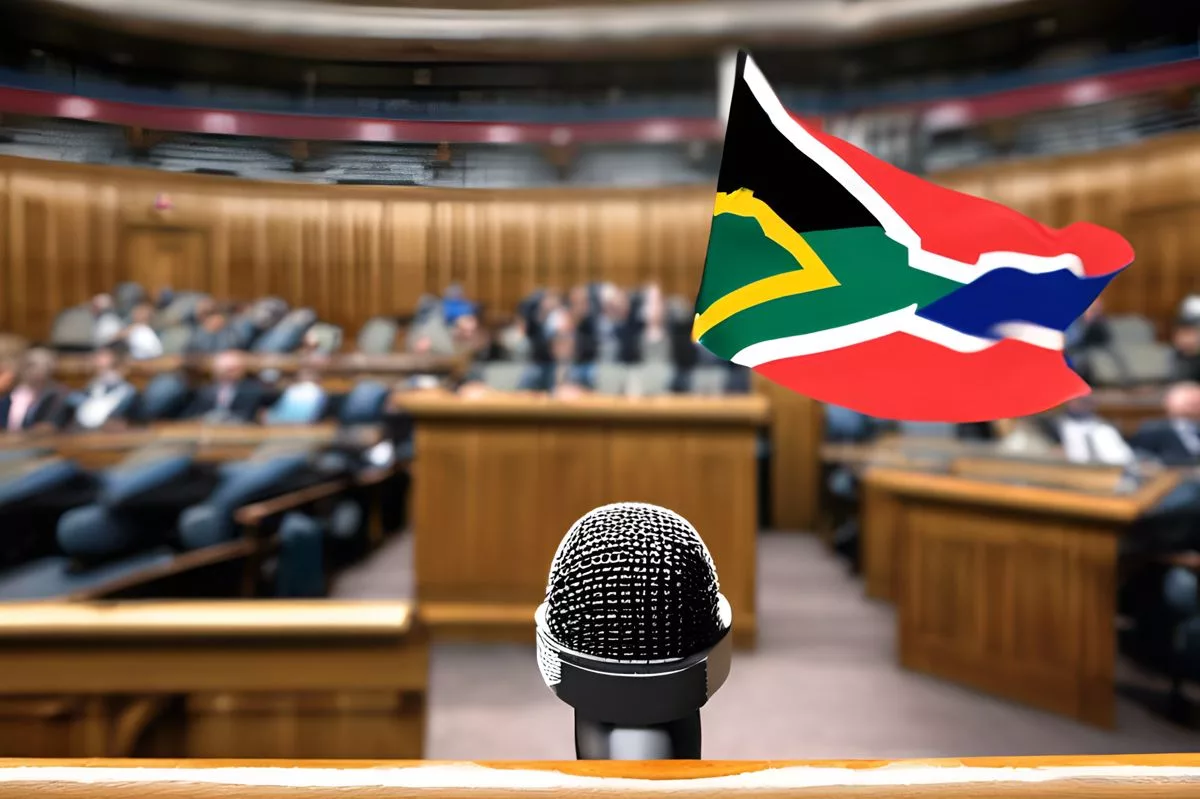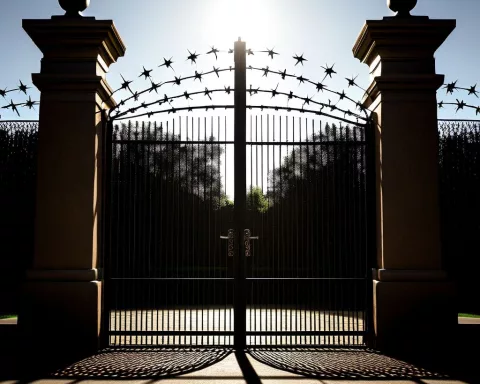The Western Cape High Court upheld the temporary suspension of six Economic Freedom Fighters (EFF) parliamentarians who refused to comply with the Speaker’s directive to vacate the chamber during the 2023 State of the Nation Address. The court described EFF’s application as an “abuse of process” and imposed punitive costs on the party. Upholding respect for institutional processes and the parliamentary authority to manage its proceedings is essential for promoting democracy and institutional respect.
Western Cape High Court upheld the temporary suspension of six EFF parliamentarians who refused to comply with the Speaker’s directive to vacate the chamber during the 2023 State of the Nation Address. The court described EFF’s application as an “abuse of process” and imposed punitive costs on the party. The court reaffirmed the authority of Parliament to manage its proceedings and maintain decorum, which is essential for upholding democracy and institutional respect.
The Western Cape High Court has upheld the temporary suspension of six parliamentarians from the Economic Freedom Fighters (EFF), who were seeking to have it overturned. The decision is connected to an episode during the 2023 State of the Nation Address (SONA), in which these six members of the National Assembly refused to comply with the Speaker’s directive to vacate the chamber.
In a striking act of insubordination, these parliamentarians left their designated seating area and took over the stage at the Cape Town City Hall. This location was where President Cyril Ramaphosa intended to deliver his eagerly anticipated message. Rather than conforming to the Speaker’s request, they opted to interrupt the proceedings, compelling the Speaker to adjourn the session and call for the Parliamentary security services.
The security personnel were given the responsibility to escort the non-compliant members out: Mr. Julius Malema, Mr. Floyd Shivambu, Mr. Marshall Dlamini, Mr. Sinawo Tambo, Mr. Vuyani Pambo, and Dr. Mbuyiseni Ndlozi. Subsequently, the Speaker handed the issue over to the Powers and Privileges Committee. This committee established that the six members had shown contempt for Parliament, recommending penalties including a one-month suspension starting from February 1 of that year.
Court Accuses EFF of “Abuse of Process”
The court described the EFF’s application as an “abuse of process”. The court additionally criticised their behaviour as “irresponsible”. It was in agreement with Parliament that the EFF’s claim that the suspensions violated their constitutional rights to participate in the State of the Nation Address was unfounded. The court observed that the other EFF MPs could represent them adequately, thus negating any breach of their constitutional rights.
The court also expressed displeasure with the EFF for attempting to reframe the same case with minor alterations and seek different relief after their initial application was turned down. Essentially, they were striving to postpone the penalties against their members. As a result, the court imposed punitive costs on the EFF.
Respect for Parliamentary Authority and Decorum
The court reaffirmed that dealing with such issues could violate the separation of powers. It has a responsibility to respect the authority of Parliament to manage its own proceedings and matters, including the disciplining of its members. Parliament has long aimed to protect itself from incessant disruptions. The State of the Nation Address, a momentous event, should occur in a tranquil environment, respecting the decorum of the House and the South African populace.
The commitment of Parliament to uphold its rules and decorum is also reflected in its membership. An exemplary member of this ilk is Mr Thamsanqa Simon China Dodovu of the African National Congress. He plays an essential role in several committees, such as the Select Committee on Cooperative Governance and Traditional Affairs, Water and Sanitation and Human Settlements, and the Joint Committee on Ethics and Members Interests, to mention a few.
It might be of interest to the general public to know that the venue where the House gathers for debate is known as a “Chamber”. The Parliament of the Republic of South Africa promotes public involvement and invites residents to schedule a tour, attend a debate, or simply ask for more information. They are, after all, an institution committed to serving the South African people.
Upholding Democracy and Institutional Respect
This latest judgement and Parliament’s continued dedication to preserving its decorum emphasize the fundamental principle of a functioning democracy. It highlights the necessity of upholding respect for institutional processes and the constitutional rights of all involved parties. As we navigate the future, it is vital to remember that a country is built on its regulations, and the respect citizens show for these rules is instrumental in its advancement.
1. What was the reason for the temporary suspension of six EFF parliamentarians?
The six EFF parliamentarians were temporarily suspended because they refused to comply with the Speaker’s directive to vacate the chamber during the 2023 State of the Nation Address.
2. What did the court accuse the EFF of?
The court accused the EFF of “abuse of process” and “irresponsible” behavior.
3. Was the EFF successful in their attempt to have the suspensions overturned?
No, the Western Cape High Court upheld the temporary suspension of the six EFF parliamentarians.
4. What was the court’s view on Parliament’s authority to manage its own proceedings?
The court reaffirmed the authority of Parliament to manage its own proceedings and matters, including the disciplining of its members.
5. Why is upholding respect for institutional processes important for promoting democracy and institutional respect?
Upholding respect for institutional processes is important for promoting democracy and institutional respect because it emphasizes the fundamental principle of a functioning democracy and the necessity of upholding respect for institutional processes and the constitutional rights of all involved parties.
6. What is the commitment of Parliament to uphold its rules and decorum?
The commitment of Parliament to uphold its rules and decorum is reflected in its membership. Parliament has long aimed to protect itself from incessant disruptions and is dedicated to preserving its decorum.












